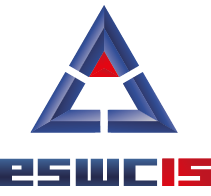
We are very pleased to announce that two of our papers were accepted for presentation as full research papers at ESWC 2015.
Automating RDF Dataset Transformation and Enrichment (Mohamed Ahmed Sherif, Axel-Cyrille Ngonga Ngomo, and Jens Lehmann)
With the adoption of RDF across several domains, come growing requirements pertaining to the completeness and quality of RDF datasets. Currently, this problem is most commonly addressed by manually devising means of enriching an input dataset. The few tools that aim at supporting this endeavour usually focus on supporting the manual definition of enrichment pipelines. In this paper, we present a supervised learning approach based on a refinement operator for enriching RDF datasets. We show how we can use exemplary descriptions of enriched resources to generate accurate enrichment pipelines. We evaluate our approach against eight manually defined enrichment pipelines and show that our approach can learn accurate pipelines even when provided with a small number of training examples.
HAWK – Hybrid Question Answering using Linked Data (Ricardo Usbeck, Axel-Cyrille Ngonga Ngomo, Lorenz Bühmann, and Christina Unger)
The decentral architecture behind the Web has led to pieces of information being distributed across data sources with varying structure. Hence, answering complex questions often required combining information from structured and unstructured data sources. We present HAWK, a novel entity search approach for Hybrid Question Answering based on combining Linked Data and textual data. The approach uses predicate-argument representations of questions to derive equivalent combinations of SPARQL query fragments and text queries. These are executed so as to integrate the results of the text queries into SPARQL and thus generate a formal interpretation of the query. We present a thorough evaluation of the framework, including an analysis of the influence of entity annotation tools on the generation process of the hybrid queries and a study of the overall accuracy of the system. Our results show that HAWK achieves 0.68 respectively 0.61 F-measure within the training respectively test phases on the Question Answering over Linked Data (QALD-4) hybrid query benchmark.
